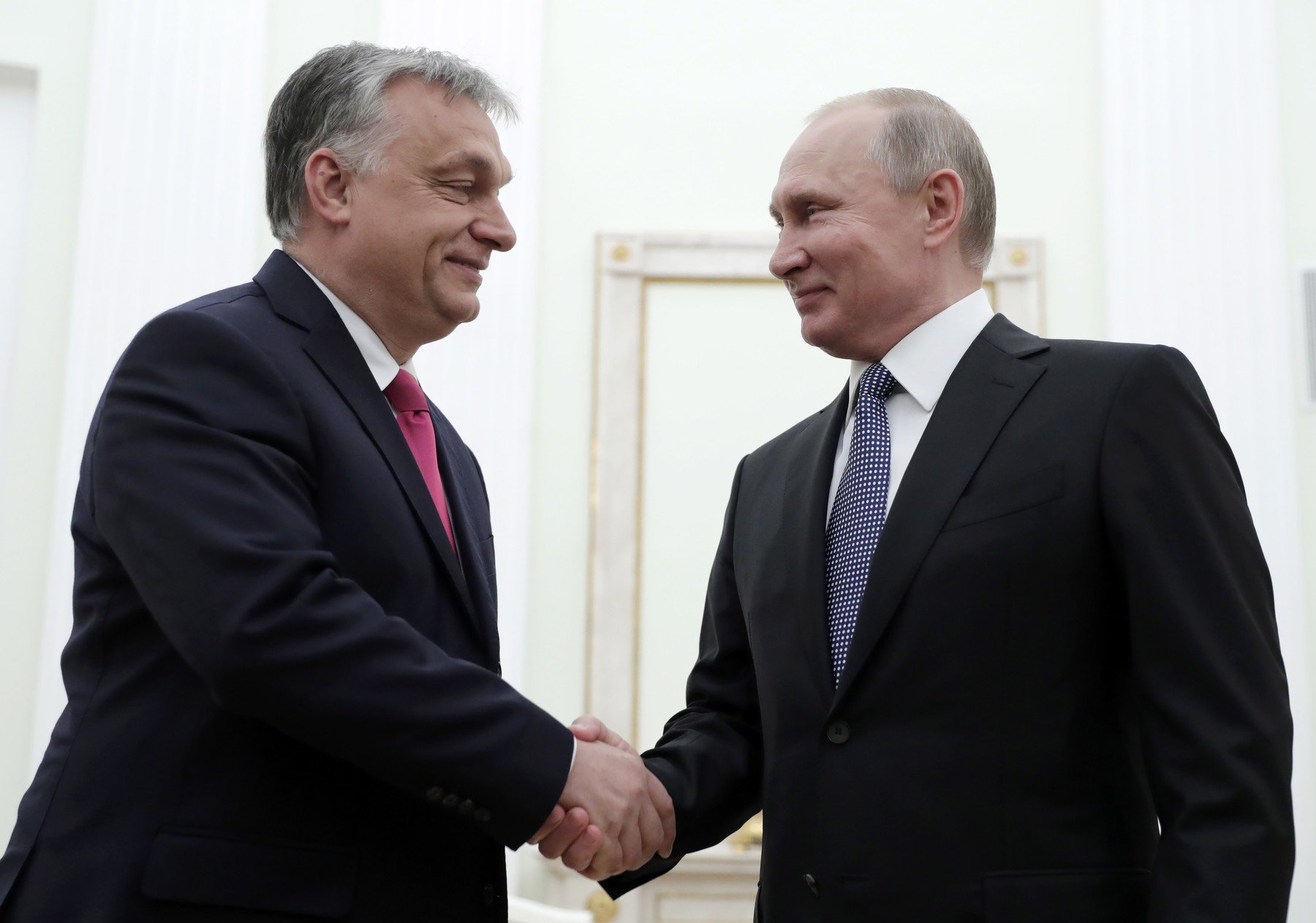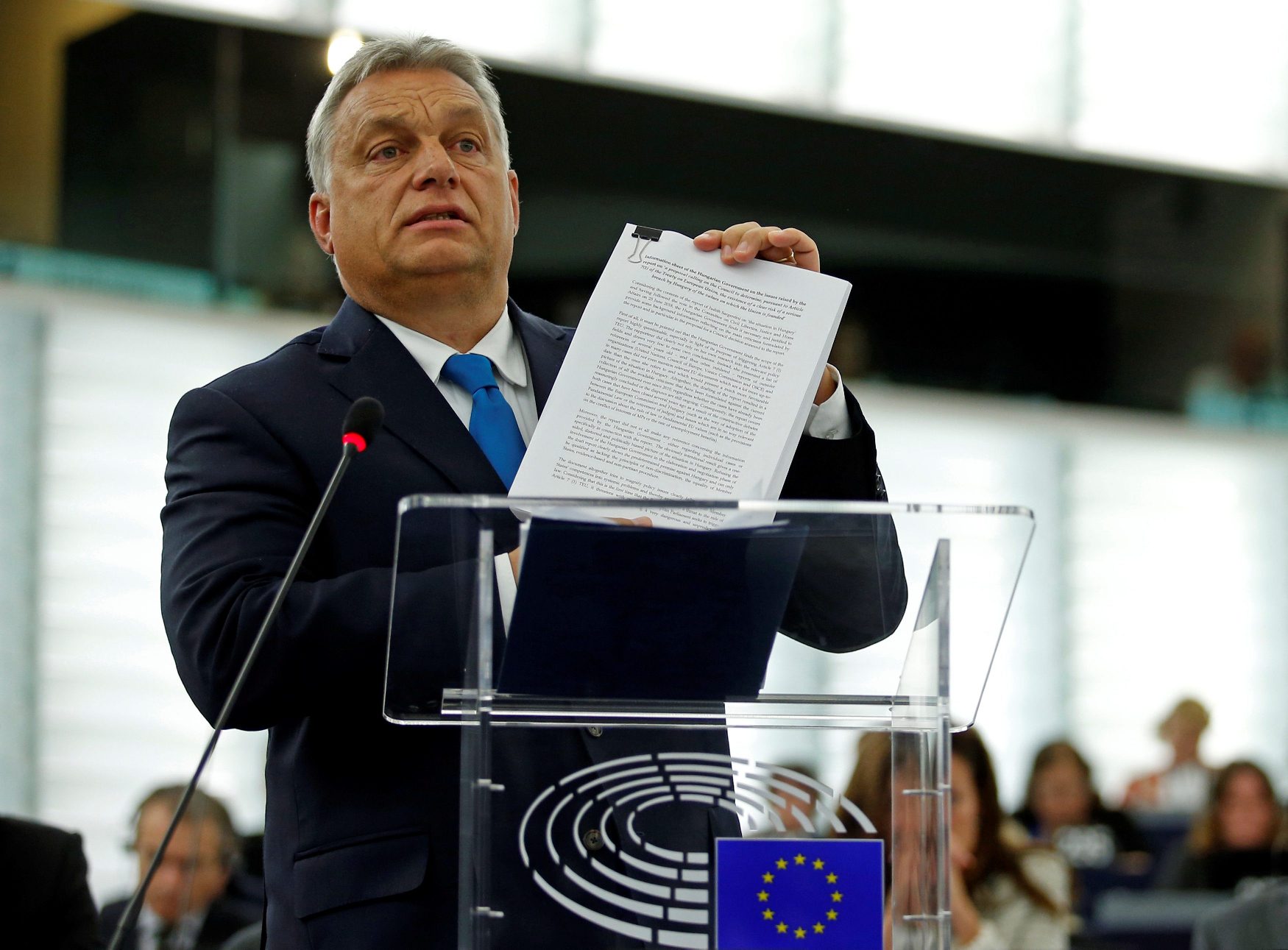
Helmut Kohl is an important historic figure, the Chancellor who united Germany and set the foundations of the European Union as we know it: with the Schengen Area, freedom of movement and joint currency, the euro. However, Kohl had one flaw: he did not know whom to take on as protégés. After unification of Germany, a smart physicist with a doctorate in quantum chemistry caught his eye, the daughter of a pastor whom he introduced to the closest circle and gave a ministerial position. He called her "my girl" and Germans now call her "Mutti," some from respect and some ironically.
Be as it may, Angela Merkel left a mark on German and European politics, but proved fatal for the political career of her mentor - when the Christian Democratic Union (CDU) financing scandal broke out in 2000, she pulled the rug from under Kohl's feet and took over the CDU. Soon after introducing Merkel to his circle, Kohl noticed a young man who stirred up the masses in Hungary with his rhetoric. US billionaire, Hungarian George Soros had already provided him with a scholarship, while Kohl saw him as the mold for making Christian democratic leaders in Eastern Europe, the future of what we today call the European People's Party (EPP).
That Viktor Mihály Orbán utterly disappointed him, refused to adopt the euro, and majority of EPP MEPs turned their backs on him on Wednesday over authoritarian rule in Hungary. However, similar to picking Merkel, Kohl made an excellent choice of person who will define European history, but not in the direction he hoped. When Orbán said several months ago that he is the successor of Kohl's politics, the CDU was appalled - they told him that Kohl connected and strengthened Europe, rather than divided and weakened, like Orbán.

He drew his political strength mostly from Hungary, where he was Prime Minister in the period between 1998 and 2002, but did not fare well. When he returned to power in 2010, he decided not to let go of it without a fight, so regulations were changed and the Constitution amended to bring about an electoral system where he could secure majority in the Parliament with relatively low support, granted him control of the media, judiciary and the Central Bank.
He created a network of people who "owe him" because he provided them with profitable positions or lucrative jobs with the State. Of course, members of his family play key roles in the system, which is the case with every authoritarian political system and strongly reminds of organized crime - this is the case in Erdoğan's Turkey, Putin's Russia and Aliyev's Azerbaijan, while US President Donald Trump would like to see the same in USA (he admires said leaders).
However, it is not likely that he will become influential on the level of the EU because, realistically, Hungary is not that strong. But, as it tends to happen in history, he knew how to take advantage of the situation: the refugee crisis in 2015 was just what he needed to stir up Hungarians after which he became head of the Visegrád Group that refused to take in migrants and opposed policies of Angela Merkel, which made him a hero of the growing populist-nationalist movement in the EU.
Aware of the opportunity, he waited for spring this year to win elections in Hungary for the third time and started a new political project after establishing a safe retreat in Budapest: to become leader, not necessarily official, perhaps a "grey eminence" of a new Europe after European Parliament (EP) elections in May next year, the anti-migrant, but liberal Europe. This summer, he formulated his plans in three stages, culminating in the seven-minute speech he held in the EP, defending his Government from reports that openly warn about threat of violation of democratic freedoms and rule of law, core European values, in Orbán's Hungary.
First speech
The first stage was implemented on 16 June, when he held a speech at the conference held in honor of Helmut Kohl. "Hungary is aware of its strength, influence and mission. For us Hungary comes first." Everyone has had it up to here with the doctrine because Trump repeated it so many times. After establishing the axioms, he started interpreting the vision of Hungary in Europe. "Hungary's ambition is to live in a strong Central Europe comprised of countries that cooperate tightly." He listed Poland as an ally and added that another objective is to entice Western Balkan countries to join the EU, "especially Serbia."
We should not forget that Orbán was very helpful in Croatia's accession to the EU. Then he defined the modern Hungary: "We are commanders of the fort on the border and we know our duty." Of course, in the wake of the migrant crisis that, just to remind you, ended in June. However, the fence on the border with Serbia is still there, which he would like to join the EU (clearly, mostly because of Hungarian minority). Two layers of fence. "Commander of the fort on the border" noted then: "Can there be compromise on the migrant debate? No and there is no need for it." The "fort" is also a metaphor for the policies Orbán wants to push: protectionism of Hungary, creation of alliances irrespective of the wishes of main allies (friend Putin). But, it is clear that people protected by the "fort" have to pay for it - drawing on EU funds cannot be dependent on adherence to European values.
Opponents
- Jean-Claude Juncker and his European Commission
- Angela Merkel
- George Soros
- West bloc of the EU
- leftist and liberal parties and policies
- Islam
- NGOs
Allies
- UK
- Other Visegrád Group members (Czech Republic, Slovakia, Poland)
- Western Balkan countries, especially Serbia
- Right stream in the HDZ (Davor Ivo Stier)
- Steve Bannon
The speech climaxed with the sentence "When it comes to EP elections in 2019, it would be very easy, for instance, to create a new group of parties from Central Europe or a pan-European anti-migrant group." At that time Orbán's party Fidesz is part of the EPP, where it encounters criticism, but it is clear to all that his 11 MEPs (Austrian ÖVP has five) will be important. However, Matteo Salvini took power in Italy, the head of the xenophobic league, who is promoting anti-migrant policies. He is looking at a very large number of MEPs, similar to how many then new head of Democratic Party Matteo Renzi brought to socialists in 2014. Orbán was still planning at that time, which is why he generously rejected the proposed idea, but told the EPP: "We have to tackle the difficult task of renewing the EPP and helping it return to Christian democratic roots." Swedish moderates were stunned.
Second speech
He addressed the issue on 28 July in Băile Tuşnad in Romania. That is the location of the summer student camp and that is exactly where Hungarian Prime Minister likes to express his political views. That is where he expanded on his idea of a strong Central Europe: "Besides economic strength, Central Europe is a region that has specific culture. It is different from Western Europe."
That means that, if the West does not accept these specific characteristics (he meant the characteristics imposed by Orbán), Central Europe can go it alone. Under Orbán's leadership. Polish ruling party Law and Justice (PiS) head Jarosław Kaczyński does not have political ambition outside Poland, and others are too weak. In order for Orbán's Central Europe ("we Central Europeans," he is presenting himself as leader) to take its rightful position in the EU, he defined five basic principles which all countries are entitled to - a) defend its Christian culture and reject ideology of multiculturalism; b) defend the traditional family model; c) defend strategic sectors of the economy and markets of special importance; d) defend borders and not take in migrants; and e) insist on 'one nation one vote' principle when it comes to important issues and not have that right taken away by the EU
This clearly defines the concept of Christian democracy, with Orbán unhesitatingly warning that current Europe is corrupt as it imposes political correctness and censorship onto everyone. "In fact, being European means nothing in liberal Europe: there is no direction and the term has become devoid of meaning. Liberal democracy has turned into liberal non-democracy. The situation in the West (meaning that Eastern and Central Europe are not tainted - Putin's propaganda uses this rhetoric when talking about the "tainted West") is such that there is no liberalism there, and no democracy either."
This is why it is necessary to establish a new political bloc that will gather all Christian-oriented parties. Christian democracy must rise as the alternative to liberal democracy. "This means that we have to preserve the way of life that results from Christian civilization. Our duty is not to defend religious norms, but the form that arises from them. This includes human dignity, family and nation because Christianity is not trying to achieve universality by abolishing the nation, but by preserving it."
Third speech
After this explanation leaked to the public, it was clear that a big split was about to happen between the EPP and Orbán. However, even after all of this, EPP head in the EP Manfred Weber invited Hungarian Prime Minister to be conciliatory and modest before MEPs (because this is one of the markings of a good Christian) in order to avoid the majority voting in favor of the report on decline of European values in Hungary. Orbán did not agree - he already has a plan B. Salvini and Austrian Chancellor Heinz-Christian Strache, the PiS and perhaps the ANO, the party of Czech Prime Minister Andrej Babiš, Slovenian Democratic Party (SDS) headed by Janez Janša, possibly part of dissenters from the Christian Social Union in Bavaria (CSU), Marine Le Pen and her National Rally - all in all some 150 seats or more.
If socialists fare poorly and the EPP suffers a schism, it is not impossible that they will be at the top of the EP with regard to number of seats, especially if President of France Emmanuel Macron's pan-European movement fails like his new party did at French elections. That is why he held a fiery speech on Tuesday, where he completed presenting his platform for a new, Christian Europe which is a direct opponent of the existing one.
The first part of the speech included branding his opponents as liars: "You will publicly condemn Hungary, which has been part of the European Christian family for more than 1,000 years: Hungary contributed to the future of our mighty continent with its work and blood when needed." We will resist the parallels with the ideology of blood and soil. Then came the denunciation of "judges" - "This report applies double standards, this is a case of abuse of power and overstepping of authority, with the method of adoption presenting violation of the Agreement."
Then came the final differentiation: "We have different thoughts on Christian character of Europe, role of national and national cultures; we interpret the essence and mission of family in different ways and have diametrically opposite views on migration." And then the final message that came with a certain dose of sobbing: "Today, for the first time in the history of the EU, we can see that the Union is condemning the guardians of its borders."
Then came the touché: "We Hungarians are prepared for elections in May when the people will finally have an opportunity to decide on the future of Europe and the possibility of returning democracy to European politics." It is abundantly clear that this includes Orbán and Fidesz outside the EPP or in a new coalition, but without those from the group who voted against him. Because breaking up the EPP is the simplest way for the new right in Europe to come to power. That is Orbán's plan. Interestingly enough, the plan is partly in line with the strategic document presented by Croatian Democratic Union (HDZ)'s Davor Ivo Stier in this week's Globus. Both projects have the same flaw: no mention of economy.
Key points of Orbán's speeches
16 June:
- We Central Europeans claim there is life beyond globalism, which is not the only possible path. Central European path is a path of alliances and free nations.
28 July:
- If we do not reach compromise on migration, concept of nation, basic principles of family policy, regulation of marriage and social integration, with regard to cultural specifics and historic roots, which EU member states should be able to do, there is no point in repeatedly and unsuccessfully trying to convince each other.
- Strong EU means strong member states. Individual responsibility of member states must remain with regard to economy, it must not be diluted in some magical process of formation of the union. This is the necessary for a strong Europe: Everyone must keep his house in order above all.
11. September:
- You would accuse Hungary, which took up arms against the largest army in the world, the Soviet army, which made the greatest sacrifices for freedom and democracy. And it is judged by people who inherited democracy, who did not have to take any personal risk to gain freedom.
- For us in Hungary, democracy and freedom are not political, but moral questions.
- We have different takes on Christian character of Europe, role of nations and national cultures; we interpret the essence and mission of family in different ways and have diametrically opposite views on migration.
- Our socialist and liberal opponents are understandably unhappy with our success.
- If you can ignore agreements as you please, what is the point of seeking an agreement with any European institutions? What you are doing is an attack on EU principles and constructive dialogue.
- Hungary will continue protecting its borders, stopping illegal migration and defending its rights, which includes defending them against you if necessary. We Hungarians are prepared for elections in May, when the people will finally have an opportunity to decide on the future of Europe and the possibility of return of democracy to European politics.





Za sudjelovanje u komentarima je potrebna prijava, odnosno registracija ako još nemaš korisnički profil....